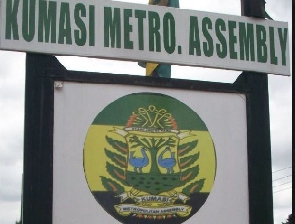The Chief Executive of the Kumasi Metropolitan Assembly (KMA), Osei Assibey-Antwi, has hinted that the Assembly is likely to lose 30 percent of its estimated revenue for 2020 due to the adverse impact of the COVID-19 pandemic.
He said although the Assembly had been losing revenue every year, the effect of the pandemic had worsened its revenue losses, considering the fact that most of the major businesses such as hotels, pubs, restaurants, and schools had closed down since the outbreak of the pandemic.
“If we look around the city, we could see the number of hotels that are empty and we could ask ourselves how are they are going to pay their workers. If we have 9.2 million school children sitting at home, how are the proprietors going to pay their teachers and other staff members?” he asked.
Mr Assibey-Antwi was speaking at the opening of a two-day stakeholder consultation meeting organised by the National Development Planning Commission (NDPC) to deliberate on the impact of the COVID-19 on small and major businesses and the lives of people in the Ashanti Region and how the country could recover from the losses.
He stated that in spite of KMA losing revenue, its expenditure on waste collection had risen because it had increased collection from 500 tons to 650 tons a day in order to keep the metropolis clean and protect the public from the COVID-19.
Mr Assibbey-Antwi admitted that the country was not in the normal times and so the public should not be complacent but should adhere to the COVID-19 safety protocols.
The Director General of NDPC, Dr Kwadwo Mensah Aborampah, noted it had become very necessary to engage small scale businesses at the local level on the national response to COVID-19.
He said there was a need for the public at the district level to organise themselves to receive some of the resources that would enable them to recover from the effects of the pandemic.
According to Mr Aborampah, there should be several engagements at the district level that would help the country review its COVID-19 medium-term plans and discover new ideas to find a way that would prevent the virus from hindering development.
An Executive member of Ghana Progressive Hairdressers and Beauticians Association, Mrs Mercy Osei Antwi, who spoke to the Ghanaian Times, commended the NDPC for bringing the deliberation on the response to COVID-19 to the local level, considering the fact that local businesses had been affected most by the pandemic.
She said the businesses were yet to recover from the effect of the pandemic and so called for continuous support from the government to cushion local and small-scale businesses.
The participants in the stakeholder meeting were mostly drawn from local associations of private businesses.
Business News of Thursday, 3 September 2020
Source: ghanaiantimes.com.gh
Coronavirus: Kumasi Metropolitan Assembly to lose 30% revenue
Entertainment












